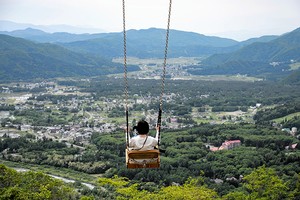By KAHO MATSUDA/ Staff Writer
October 4, 2024 at 18:46 JST
 The Tokyo metropolitan assembly passes an ordinance to prevent customer harassment on Oct. 4. (Kaho Matsuda)
The Tokyo metropolitan assembly passes an ordinance to prevent customer harassment on Oct. 4. (Kaho Matsuda)
The Tokyo metropolitan assembly passed the first ordinance in Japan aimed at protecting service workers from abuse and unreasonable demands from customers on Oct. 4.
The ordinance to prevent what is known as “kasu-hara” (customer harassment) will take effect in April of next year.
Customer harassment, which can include shouting at or grabbing a worker by the collar, has become a serious issue nationwide in industries that involve direct customer service.
Tokyo government officials have been seeking expert advice and considering countermeasures.
Hokkaido, Saitama and Mie prefectures are also considering introducing ordinances.
The central government is weighing a revision of laws to require that companies protect their employees from customer harassment.
It aims to submit the revised bill to next year’s ordinary Diet session at the earliest after discussions between labor and management.
The Tokyo ordinance defines customer harassment for the first time as “severe disruptive behavior by customers or others toward workers in relation to their duties, which harms the working environment.”
It stipulates that “no one shall engage in customer harassment in any situation” and that “(countermeasures) must be taken by society as a whole.”
The ordinance applies not only to private companies but also to public institutions.
It also outlines the responsibilities of customers, workers, companies and the Tokyo metropolitan government in preventing customer harassment.
However, the ordinance does not include penalties for violators.
The Tokyo government plans to create guidelines and industry-wide manuals that outline specific examples of prohibited behaviors to enhance the effectiveness of the ordinance.
By promoting these alongside the ordinance, the Tokyo government wants to raise awareness and foster momentum for protecting workers.




















A peek through the music industry’s curtain at the producers who harnessed social media to help their idols go global.
A series based on diplomatic documents declassified by Japan’s Foreign Ministry
Here is a collection of first-hand accounts by “hibakusha” atomic bomb survivors.
Cooking experts, chefs and others involved in the field of food introduce their special recipes intertwined with their paths in life.
A series about Japanese-Americans and their memories of World War II